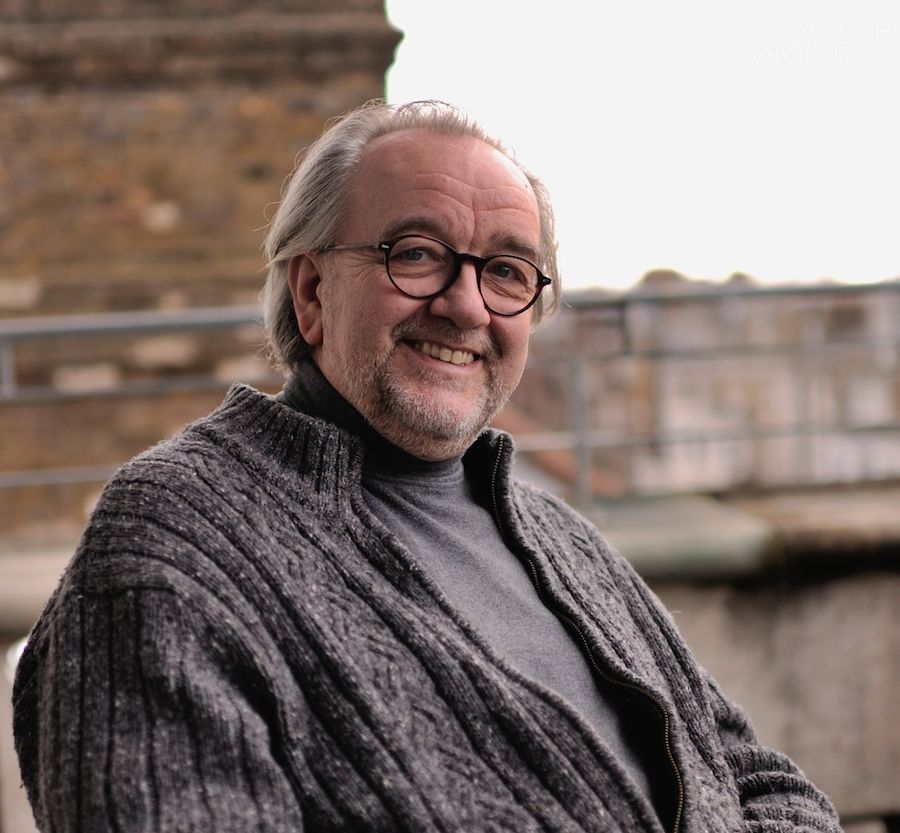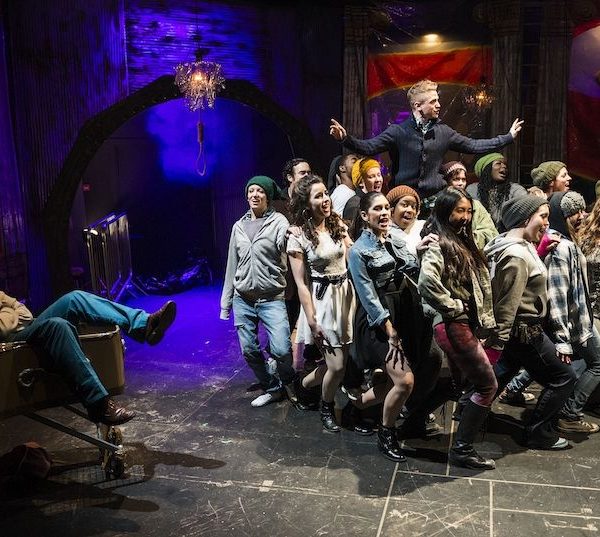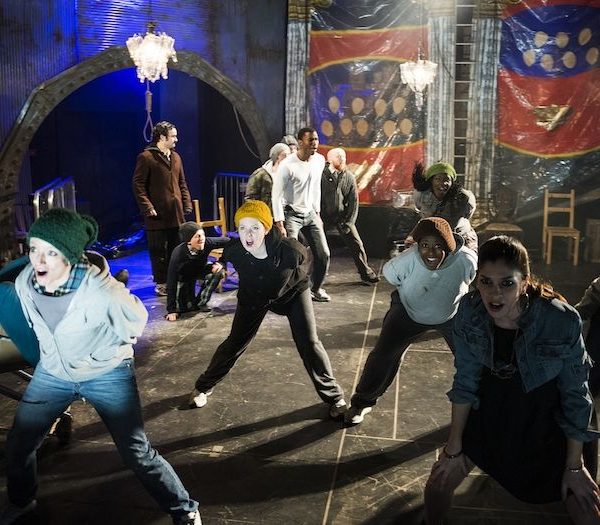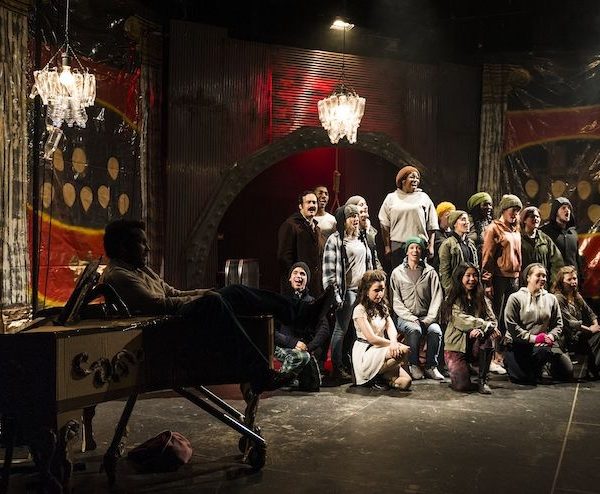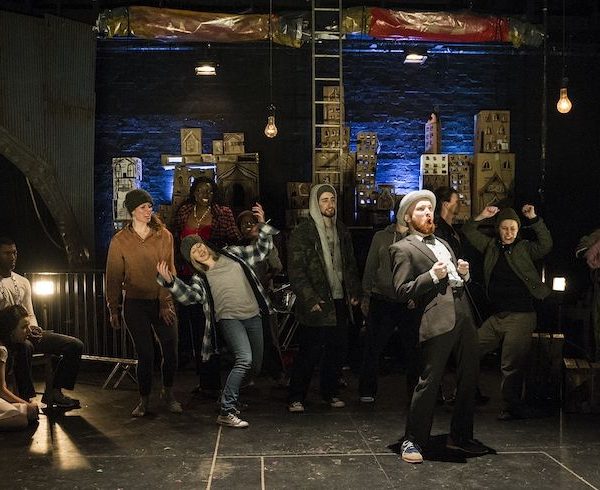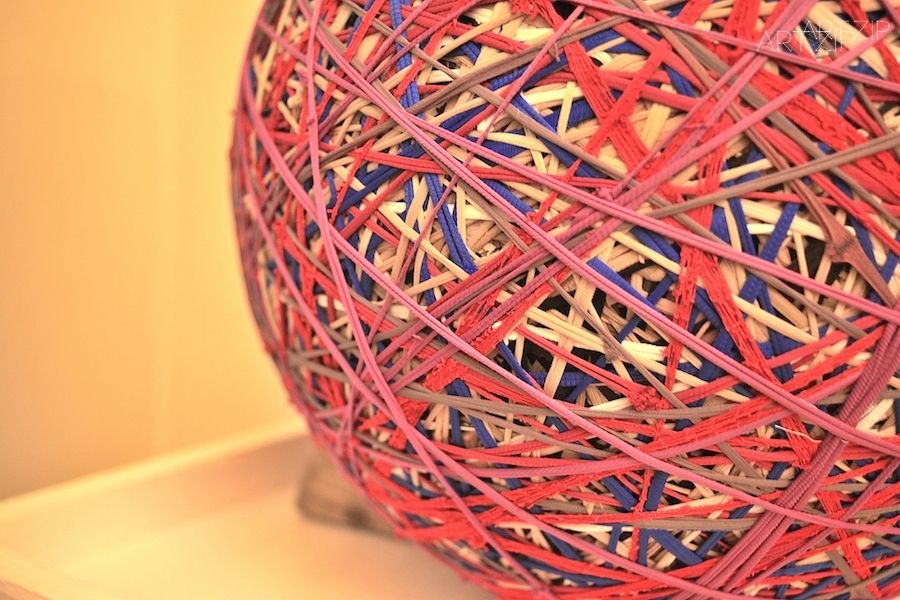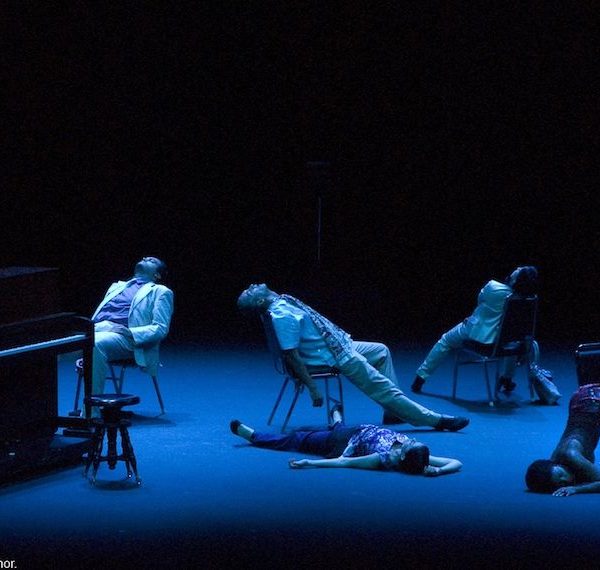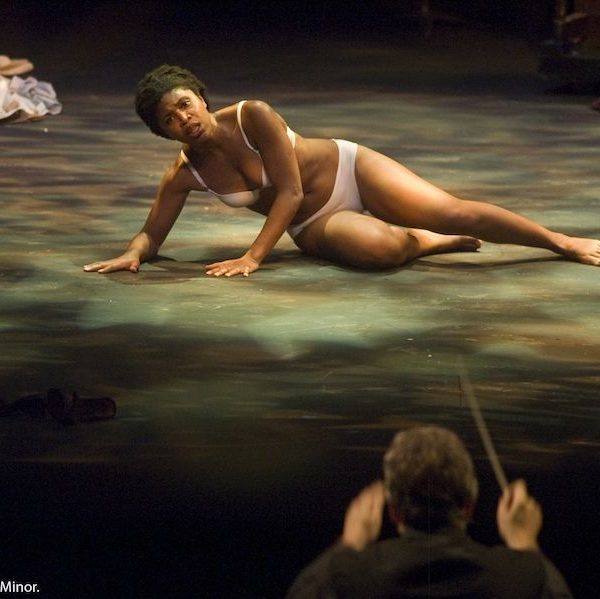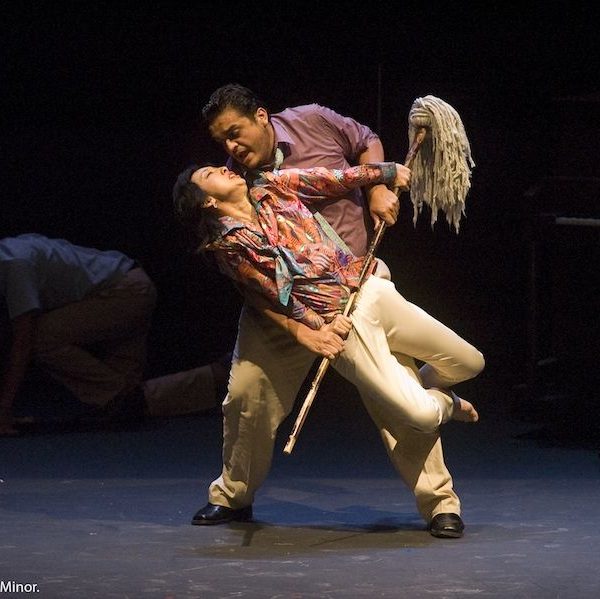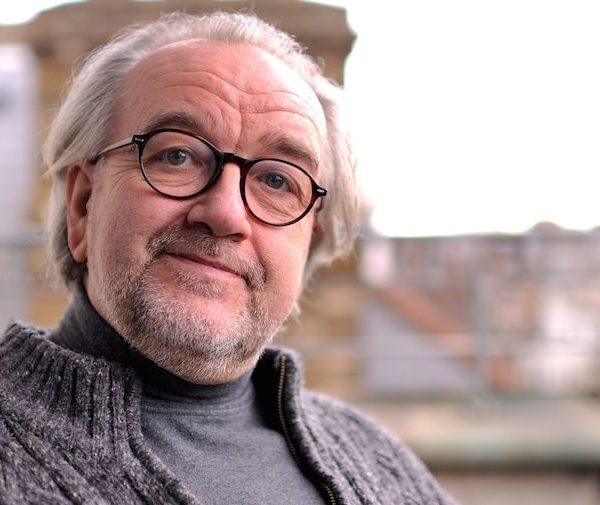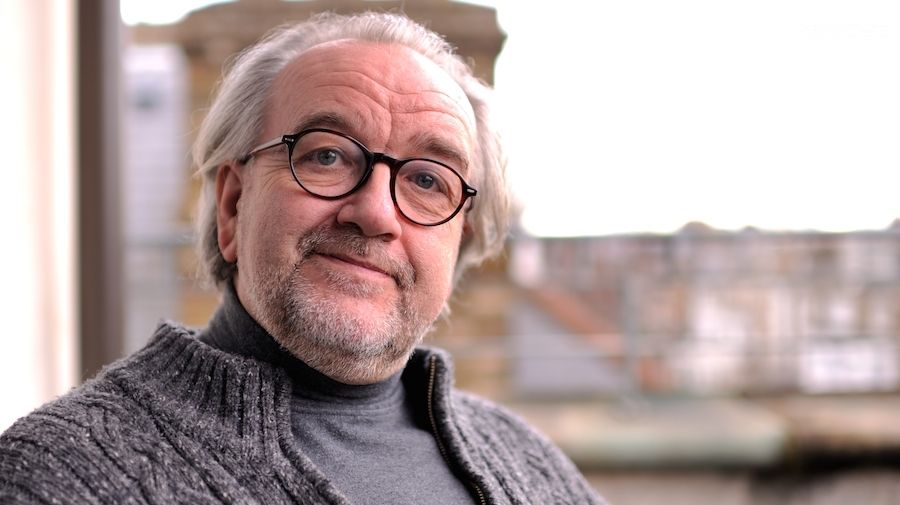
Interview with Professor Paul Barker
Professor and Course Leader of MA Music Theatre
Royal Central School of Speech & Drama
採訪皇家中央戲劇與演講學院音樂劇場碩士課程主任及教授
保羅·巴克教授
.
Paul Barker is a composer, pianist, director and author. He has worked extensively with singers as composer, MD and coach in opera, musicals and concerts across many genres and styles. He was Artistic Director of Modern Music Theatre Troupe (UK), and Optemus (Mexico), co-founder and first Chair of Opera and Music Theatre Forum. He has worked at RCSSD since 2005 where he is Professor of Music Theatre and course leader of MA Music Theatre.
保羅·巴克是一位作曲家、鋼琴家、導演和作家。作為作曲家的他與眾多歌手合作,在各種類型和唱法的歌劇、音樂劇和演唱會裡擔任音樂總監和指導。他還是英國現代音樂劇場劇團(Modern Music Theatre Troupe)及墨西哥歐特姆斯劇團(Optemus)的藝術總監,第一屆歌劇音樂劇場論壇(Opera and Music Theatre Forum)的聯合創始人及主席。從2005年起巴克教授在皇家中央戲劇與演講學院授課,並擔任音樂劇場課程的教授及碩士課程主任。
.
ART.ZIP: When and how did you start doing music theatre?
PB: I started singing and playing piano when I was 8 years old. I was born in Cambridge and I sang in a college choir there as a boy. My choirmaster gave piano lessons and I said to him I wanted piano lessons. My piano teacher was very unusual, after a while he said to me, ‘you are a bit bored with some of this music, shall we write our own?’ So he wrote me a piece of music then and there which I still have. So for me composing was very natural thing, it was just what I did from then on. I was lucky enough to have a piano teacher to inspire me to do that.
Later I went to Guildhall School of Music as a composer pianist, and then I went to Durham University for electronic music. My earliest work was for a contemporary dance company but I soon found myself interested in theatre as a whole. I became very excited about how drama and music were the same thing, different aspects of the same set of disciplines. So all my life I have worked in music and theatre professionally, as a composer, pianist, composer and conductor and lately as director too. I have discovered being a composer and a director for me is very much an expression of the same process. So now I run the MA Music Theatre here and I work as a composer with about 17 operas and music theatre works that have been performed all over the world. I have had the chance to write a few orchestral works, but music and theatre is where I do most of my work. Whenever I am commissioned to write a concert work for piano or string quartet, I prefer to write for concert theatre. Where the performers need to embody their performance theatrically, not depending upon sight reading. My theatre goes into my music world, just as my music goes into my theatre world. That’s how I think of music and theatre. They are the same.
ART.ZIP: 您是如何開始進行音樂劇場實踐的呢?
PB: 我八歲的時候就開始唱歌和彈鋼琴。我在劍橋出生,從小就在一個學院唱詩班唱歌。有次我跟唱詩班指揮說我想學鋼琴,就這樣,他成為了我的鋼琴老師。我的老師特別不同尋常,練了一段時間鋼琴後他對我說:“你現在對某些歌曲感到無趣了吧,我們自己寫寫曲子看看?”然後他就給我寫了一首曲子,那曲子到現在我還珍藏著。所以作曲對我來說是自然而然發生的事,從那以後我就開始譜曲了。我覺得很幸運有這樣一位鋼琴老師啓發我去創作。
之後我到了倫敦市政廳音樂學校(Guildhall School of Music)學習鋼琴作曲,再後來到了杜倫大學(Durham University)學習電子音樂。我最早期的作品是給一個當代舞蹈團寫的,但很快我就發現自己更喜歡作為整體來看待戲劇。我很激動地發現音樂和戲劇在本質上是一樣的,只是同樣規律的不同方面。所以我一生都在音樂和戲劇領域工作,無論是以作曲家、鋼琴家、指揮還是導演的身份。我發現作為作曲和導演都有著同樣的表達過程,因此在這裡教音樂劇場碩士課程的同時我還為十七個在各國表演的歌劇和音樂劇場作曲。我還曾為一些管弦樂團作曲,但音樂劇場是我做的最多的。對比為鋼琴或者弦樂四重奏譜曲,我更傾向為音樂會劇場(concert theatre)寫曲。表演者需要通過戲劇的形式來體現他們的表演,而不是依靠視覺閱讀的方式。我的戲劇世界走進音樂世界就如我的音樂世界邁入我的戲劇世界一樣,對我來說音樂和戲劇都是一樣的。
ART.ZIP: Do you have collaboration with the professions of the industry?
PB: At RCSSD we have directors, musical directors, designers, choreographers, and singers, others coming to work with us all the way through the year. Many of them may be professionals I have worked with outside the school, others are new to me. The reason why we get professionals to work with us is that is how the students learn what is required outside. Last year one of my students was chosen to be a lead in ‘The Commitments’, the musical which is at the West End now. So we constantly try to find ways to make the profession see the good standards our students can have. Many of our students go direct from the course directly into good work in the profession like this. But I have to say it is a hard and very competitive industry. A thick skin and determination are sometimes as important as ability.
ART.ZIP: 你們的課程有和業內人士合作的機會嗎?
PB: 在我們學校全年都會有和導演、音樂總監、設計師、編舞、歌手,還有其他專業人士合作的機會。當中有許多都曾經在學校以外和我合作過,但也有很多沒合作過的。我們與業內人士合作的原因是為了讓學生們知道業內需要的是什麼、標準是什麼。去年我的一個學生被選上成為《承諾(The Commitments)》的主演,這部音樂劇現在正在西區上演。我們都會竭盡全力讓業內人士看到我們的學生都具有很高的水準。我們這裡很多學生畢業以後都直接入行,但我不得不說這是一個競爭非常激烈的行業,一點都不容易。有時候厚臉皮、堅韌的意志和能力一樣重要。
ART.ZIP: How do you recruit your students? What kind of students are you looking for?
PB: Very good question. It’s really important. Firstly, at undergraduate level, the student can come straight from school, obviously, but at postgraduate level when I teach them, they usually come from a university course. Usually applicants finish a degree, often in theatre or music or dance, but sometimes it’s not a degree like that at all. We get quite a few people from theology or from law or other apparently unrelated subjects. Typically their parents said ‘go and get a proper degree’, but afterwards they say ‘I’ve got my degree, it’s boring, and I want to do something I love, now.’ So then they audition here. They probably spent all their time at university in student performances, so they know how to be on the stage, they know how to act and dance, play instruments, compose, choreograph and even produce shows. They see this one-year course of MA Music Theatre as their chance to see if they can make it to the profession.
ART.ZIP: 你們是如何挑選學生的呢?或者說你們在找什麼樣的學生呢?
PB: 這是一個好問題,因為這個很重要。首先,在本科階段,學生可以從中學畢業后直接申請。但在碩士階段,他們通常要先完成一個大學課程之後再來申請,通常他們已經修完一個戲劇、音樂或者舞蹈表演的學位,但有時候他們的本科課程可能與戲劇和表演一點都不相關。我們有不少學生以前是讀神學、法律甚至是其他一些毫不相關的學科。典型的一類學生是父母要求他們完成一個“正當”的學位,但當完成學業以後,他們就會跟父母說,“我已經拿到學位了,實在很無趣,現在我必須做些我愛做的。”然後他們就來參加我們的面試。他們很可能在大學花了相當多的時間在學生表演上,所以他們知道如何在舞台上表演、跳舞、演奏樂器、作曲、編舞還有劇場製作。他們把這一年的音樂劇場碩士課程看成一個機會,看看自己是否能夠進入這個行業。
.
ART.ZIP: So they don’t need a relevant degree?
PB: They must have experience. The relevant degree is not so important; it’s experience in performance that really matters. I think experience comes in different ways. In the first year I was here, there was a girl in our audition, she never had a singing lesson in her life, and she couldn’t read music at all. But she has been singing in a gospel choir from the age of three, so she knew all about singing. Because she sang in front of big crowds all the time, and she had a voice of massive size, it was an enormous voice. She could act, because her instincts were learned through regular performance. Her first job was in a musical at the National Theatre. It’s extraordinary and it confirmed to me that to do a music theatre degree you don’t need to read music, you need experience more. Perhaps music should be more about listening than reading, too? Certainly acting is about listening. Anyway, we have many students perhaps from music conservatoires alongside those who cannot read, and they learn from each other the benefits of both. So what our intensive year offers is an experience as deep and as intense as we can make it, backed up by self-analysis and intensive guidance into intellectual, emotional and physical skills. Fitness is crucial. We also help out students to survive beyond the year with us, to be adaptable and to sustain a career throughout a life.
ART.ZIP: 所以申請人不需要相關的學歷?
PB: 相關的學歷不是最重要的,最重要的是表演經驗,他們需要有相關的經驗。我覺得經驗是可以通過不同途徑獲取的。我剛到這裡任教的時候,有一個女孩參加面試,她從來沒有接受過任何歌唱訓練,她也完全不懂聲樂,但是她從三歲開始就在一個福音合唱團唱歌,她知道如何歌唱,因為她一直在一大群人面前歌唱,所以她的聲音很宏厚響亮,她也會表演,她都是在往常的表演裡自學而成的。她第一份工作就是英國國家劇院的一個音樂劇,這很不尋常,但這更堅定了我的想法,修讀音樂劇場學位,你並不需要會讀譜,你更需要的是經驗。或許因為音樂是用來聽的,而不是用來讀的。不管怎麼說,我們很多學生來自公立音樂學校,也有那些連譜都不會的學生,他們都能互相學習,都能有所裨益。所以在這麼短短一年學習裡,我們會給學生提供在強度和深度上都儘量豐富的體驗,還有在智力上、情感上和肢體技巧上的自我分析和高密度的引導支持。學生畢業以後我們還會幫助他們,讓他們日後能夠找到不錯的工作。
ART.ZIP: Do most of your students go to the industry after their graduation?
PB: Most of them. At the end of the year, by September, I would expect over half of them have an agent. The others may find agents later on and there are always those that won’t get agents but still get professional work. Our course is unique in the emphasis it gives to composing, writing, choreographing and playing instruments as well as singing, acting and dancing. That kind of adaptability sustains a career. A small number will decide that they are not going to do perform, they may do something connected to it, perhaps teaching, perhaps working on television in production, a lot of them work as directors, set up their own companies. Several alumni are now working as comedians, song-writers and composers. I won’t say those we take on that they would all end up professional performers, but I would say the majority do. It is also important to realise that people change their profession too; theatre is very unfair, for instance it is greedy for young people and men. There is little doubt it becomes harder as you get older, and tougher always for women.
ART.ZIP: 大部份學生畢業以後都會進入戲劇行業嗎?
PB: 大部份是的。每年九月,也就是學年結束的時候,大概一半的學生能找到自己的經紀人。其他學生畢業不久後也能找到經紀人,而那些沒有簽約的學生也能找到與專業相關的工作。我們的課程特別強調作曲、寫作、舞編、演奏樂器、唱歌、表演和舞蹈,這樣的能力足夠使他們找到一份很不錯的工作。一少部份學生不會選擇表演,但也會挑選與其相關的職業,例如教師、電視台監製、導演、或者成立自己的公司等等。相當一部分校友現在是喜劇演員、唱作人和作曲家。不是所有的學生都會成為專業演員,但其中很大一部份畢業生最後會成為專業演員。值得注意的是人們也會改變自己的職業方向;戲劇行業挺不公平的,譬如說總是喜歡年輕人,還有男性;當你變老的時候就更困難了,特別是女性。
ART.ZIP: How many students do you recruit every year? Do you have any students from China? What suggestions would you give to those who would like to apply for your course?
PB: We have about 20 students a year on my course. Currently we have one Chinese student from Shanghai, and we have had one or two most years I have been here. The really crucial thing for foreign students is that can they stand on stage, act in English and be understood by the audience. That may be a barrier. If someone has a wonderful voice but can’t be understood, there’s little we can do in one year. I lived and taught theatre for some years in Mexico and it was the same there, that we sent people away if their accent was too Brazilian, or they came from countries like Uruguay, which has a very different Spanish. If they could not be understood in Mexico, we couldn’t take them on. Pronunciation of the language is crucial: if it isn’t clear, the audience aren’t going to follow it. English is not an easy language to pronounce. As a composer and musician, that annoys me, so I did something about it I will discuss later.
ART.ZIP: 你們每年都招多少學生呢?有來自中國的學生嗎?您會給想要申請這個課程的學生什麼建議呢?
PB: 我的課程每年招二十位學生,自從我來這裡任職以後每年都有一到兩位中國學生,最近就有一位來自上海的學生。對於外國學生來說最關鍵的是他們能否站在台上,用英語表演並讓台下的觀眾明白,這可能是一個難點。如果他有美妙的聲音但卻無法讓台下的觀眾明白,那麼我們很難在一年內使他有什麼明顯的改變。我曾經在墨西哥生活並從事教育,在那的情況也是一樣的,如果他們擁有濃重的巴西口音我們也不能要;或者他們來自烏拉圭這樣有自己獨特腔調的西班牙語國家,如果他們在墨西哥不能被理解,我們也不能選他。語言的準確發音是非常重要的:如果說得不清晰,觀眾就可能跟不上了。英語不是一種容易發音的語言。作為一位作曲家和音樂家,這讓我很苦惱,所以我做了一些舉措,等會我會談到。
ART.ZIP: Apart from language, what other things would you say it’s quite different between western student and Asian students?
PB: Maria Huesca teaches singing on my course as a physical discipline and we believe that to sing you need to be in part an athlete. So dealing with muscle tension, dealing with pain may be an important part of singing. There was a very muscular tall student, who played rugby and football. Maria said to this man, ‘what we are going to do may be a little painful’. He said, ‘I don’t mind, I’ll be alright.’ Within five minutes, he was on the floor groaning in pain. Next was a Chinese girl I remember well, called Candy Ma, looking quite tiny and not obviously muscular. After 20 minutes, Maria went up to her and asked, ‘is it hurting?’ Candy nodded, still smiling but not showing the pain. So from this I understand many Asian students have great resilience: an ability to deal with such challenges which is more profound than the western idea of strength. There are many forms of strength which range from how to resist movement to how to bend. Knowing what sort of physical development to pursue affects what kind of performer you are and what skills you can master.
Now regarding thought-processes and emotional development, it’s something very different indeed. Yixuan Liu is my current student from China. She has had to challenge her understanding and use of facial expressions. At first, her face did not change much in class. There was perhaps a resistance to demonstrating her feelings that was cultural. But on an acting course control over your facial expression is crucial. And the change in a few months that I see in people like her dealing with, in this learning process, can be very challenging and very profound.
So what must the Chinese student show to get in this course? Number one, they must have experience in performing; number two, they must be able to stand in front of people, speaking or singing English and be understood. Those who also play any instruments, can compose or can choreograph would be particularly welcome. In our course audition we have 12 people in each time. They are all in front of each other for three hours. They do everything in front of each other with the singing teacher, the dance teacher, another director as well as me. And we give them a small version of what our course is like. In those three hours, they experience the course, a miniature part of it. So hopefully they understand better what the course is after the audition. So I recommended people to come to do the audition, because there isn’t an easy way to explain what we do. In some schools, you just stand in front of a few people, you perform and you leave, but we don’t do that. We have a very different approach exploring how to work together.
ART.ZIP: 除了語言之外,您覺得西方學生和亞洲學生還有什麼特別不一樣的地方嗎?
PB: 瑪利亞·修斯卡(Maria Huesca)在我的課上進行歌唱練習來作為身體訓練的一部分,我們相信歌要唱得好,你在某種程度上就得像運動員一樣,因為處理肌肉緊張和疼痛是歌唱的一個重要部分。曾經有位非常高大健碩的學生,他是玩橄欖球和踢足球的,瑪利亞跟他說,接下來我們進行的訓練可能會有點痛。他說,我沒問題的,來吧。五分鐘之後,他已經疼得躺在地上發出痛苦的呻吟。下一位接受訓練的是一位中國女孩,我記得特別清楚,她看起來很瘦小,一點都不強壯。過了二十分鐘,瑪利亞上前問她,疼嗎?她點點頭,還是笑眯眯的,看起來一點都不覺得疼。從這以後我明白很多亞洲學生具有極大的韌性,一種處理挑戰的能力,他們身體裡潛在的力量遠比西方概念裡的“強壯”要深遠得多。力量有很多種形式,包括如何抵抗外力還有如何屈伸。懂得如何運用身體來獲得某種效果直接影響了你是哪一類型的表演者,還有決定了你可以掌握哪一種表演技巧。
而對於思考方式和情感建立方面則是大大的不同。劉以軒是我現在的中國學生,她必須學會挑戰她的理解力和學會運用面部表情。起先,她在課堂上完全沒有表情。或許是因為文化的差異,她拒絕流露自己的情感。但是表演課最重要的就是學會控制你的面部表情,通過數月的學習她的轉變大得令人驚訝。
所以中國學生想要申請這個課程需要什麼?第一,他們需要有表演經驗;第二,他們必須能夠站在觀眾面前,說英文,唱英文並被聽懂。我們更歡迎那些會樂器,能作曲或者會編舞的申請人。
我們的課程面試每次都會由十二名學生一起進行。他們會和聲樂老師、舞蹈老師、導演和我一起進行三個小時的面試。我們會給他們展示一個精簡版的課程體驗。通過這樣的迷你課程希望他們能夠了解我們的課程是怎麼樣的。所以我會強烈建議大家都來參加面試,因為要向大家展示我們是如何教學的,這實在不是一件容易的事。某些學校的面試只要求申請人站在老師面前表演一段然後離開,我們沒有那麼做。我們用不一樣的方式來探尋如何能夠更好地合作。
ART.ZIP: Do you have any interesting projects recently?
PB: In June we have an unusual project combining music theatre with conceptual street art. It is called ‘The Tights Ball’ and is a collaboration between MAMT, Platform 7 and two artists, Anna Kompaniets and Lenka Horakova. We have collected old tights from colleagues and the public, in the street. Along with them we have collected many stories. Some of those stories will be performed with music and theatre in the streets of Camden on June 21 & 22. The giant ball of recycled tights that the artists have made will be in the performance which will have a Camden rubbish truck as a functioning part of the set. Our approach to music theatre crosses into other genres, which is typical in Europe.
On a more traditional level, our production of ‘The Beggars’ Opera’, which we premiered earlier this year, has been invited to the Zhongguancun International Musical Festival in Beijing. ‘The Beggars’ Opera’ dates from 1728 and is often talked of as the first musical ever; our version has original music by myself and others in the cast. Also invited is a work of mine called ‘El Gallo’. It was commissioned by a Mexico-based theatre company, Teatro de Ciertos Habitantes who have performed it well over one hundred times across the US, Latin America and Europe. It is for six actors and two string quartets but it has no text, no words in any language. The syllables that are sung are all nonsense and invented by me. But not to confuse the audience, but rather to allow the music, theatre and dance to lead the audience through the story, whatever language they speak, without translation, subtitles or programme synopsis. Audiences everywhere seem to like this and as a composer and musician, I sometimes like to see language kept in its place!
ART.ZIP: 你們最近有什麼有趣的項目嗎?
PB: 六月份我們有一個挺好玩的項目,那是結合音樂劇場和概念街頭藝術的項目,叫做“絲襪球(The Tights Ball)”項目。這個項目是我們音樂劇場課程和七號站臺(Platform 7)藝術組織,還有兩位藝術家安娜·康姆潘尼爾茲(Anna Kompaniets)和蘭卡·霍拉科娃(Lenka Horakova)一起合作的。我們在街頭向路人回收舊絲襪和收集他們的故事。彙集來的那些有意思的故事將會在今年6月21日和22日被搬到卡姆頓(Camden)的街頭用音樂和劇場的形式表演出來。兩位藝術家會把回收來的絲襪做成一個巨大的球,這個球也會和卡姆頓的垃圾車一起作為道具出現在表演中。這種音樂劇場和其他類型的藝術形式合作的項目在歐洲十分普遍。
至於傳統的劇場作品,我們製作的《乞丐的歌劇(The Beggars’ Opera)》在今年年初首映,現在已被邀請到北京中關村國際音樂節進行演出。這部1728年的作品被認為是最早的音樂劇;而且我們自己製作的版本有原創的音樂部分。還有一部默劇叫做《El Gallo》也被邀請演出,這是一部由墨西哥戲劇公司委託創作的作品。居民劇團(Teatro de Ciertos Habitantes)已經在美國、拉丁美洲和歐洲巡演了不下一百遍了。這個劇只有六個演員,兩個弦樂四重奏樂隊,沒有任何台詞和文本。歌曲中的音節都是由我寫的,沒有任何具體含義。但我並不是為了迷惑觀眾,而是希望讓音樂、劇場和舞蹈本身來讓故事,娓娓道來。表演期間沒有任何的翻譯、字幕或者節目介紹。無論哪個國家的觀眾都對這部默劇十分著迷,作為作曲家和音樂家,有時候我真的覺得音樂勝比萬語千言。

